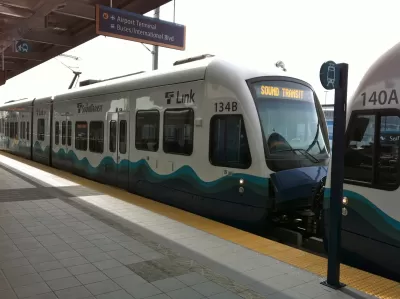Transportation planners must address equity issues in their work and involve the people most affected by the planning and policymaking process.

Issues of equity are relevant to transportation, writes Shannon Jordy, who shares a number of lessons learned from work at philanthropic and community organizations about ways transportation planners can ensure that equity is not overlooked.
Jordy says that data can hide the complexities of transportation issues and challenges. "Without disaggregating data – by gender, race and ethnicity, and class – there is no way to see the effects of an effort or a project on the communities it intends to serve."
Jordy also encourages a focus on problems rather than solutions as a way to efficiently reach the best outcomes. "By starting with the problem and sticking with it, preferably in the form of appropriate performance measures and metrics, folks never lose sight of the change they’re trying to effect."
Understanding how stories are told is also important in facilitating change, argues Jordy. "Numbers and data are great, but what sticks with those in power are the first-hand accounts of transit riders: their struggles and the impact of poor transit options on their quality of life. Those stories can’t come to the surface without engaging those who actually use public transit services."
In addition, transportation professionals should think broadly about partnerships and the ways mobility helps people access a range of services, says Jordy. Organizations also need to better reflect the communities they serve from staff up through management and leadership.
"Until the transportation field realizes it has a major equity problem, and that its workers are making race-, gender-, and class-neutral policies that are literally costing people’s lives and livelihoods, transportation practice will be a road to nowhere," adds Jordy.
FULL STORY: Five Ways Transit Pros Can Get on Board the Equity Train

Alabama: Trump Terminates Settlements for Black Communities Harmed By Raw Sewage
Trump deemed the landmark civil rights agreement “illegal DEI and environmental justice policy.”

Study: Maui’s Plan to Convert Vacation Rentals to Long-Term Housing Could Cause Nearly $1 Billion Economic Loss
The plan would reduce visitor accommodation by 25% resulting in 1,900 jobs lost.

Planetizen Federal Action Tracker
A weekly monitor of how Trump’s orders and actions are impacting planners and planning in America.

Federal Homelessness Agency Places Entire Staff on Leave
The U.S. Interagency Council on Homelessness is the only federal agency dedicated to preventing and ending homelessness.

Restoring Northern India’s Himalayan ‘Water Temples’
Thousands of centuries-old buildings protect the region’s natural springs and serve as community wells and gathering places.

Milwaukee to Double Bike Share Stations
Bublr Bikes, one of the nation’s most successful, will add 500 new e-bikes to its system.
Urban Design for Planners 1: Software Tools
This six-course series explores essential urban design concepts using open source software and equips planners with the tools they need to participate fully in the urban design process.
Planning for Universal Design
Learn the tools for implementing Universal Design in planning regulations.
Caltrans
Smith Gee Studio
Institute for Housing and Urban Development Studies (IHS)
City of Grandview
Harvard GSD Executive Education
Toledo-Lucas County Plan Commissions
Salt Lake City
NYU Wagner Graduate School of Public Service





























